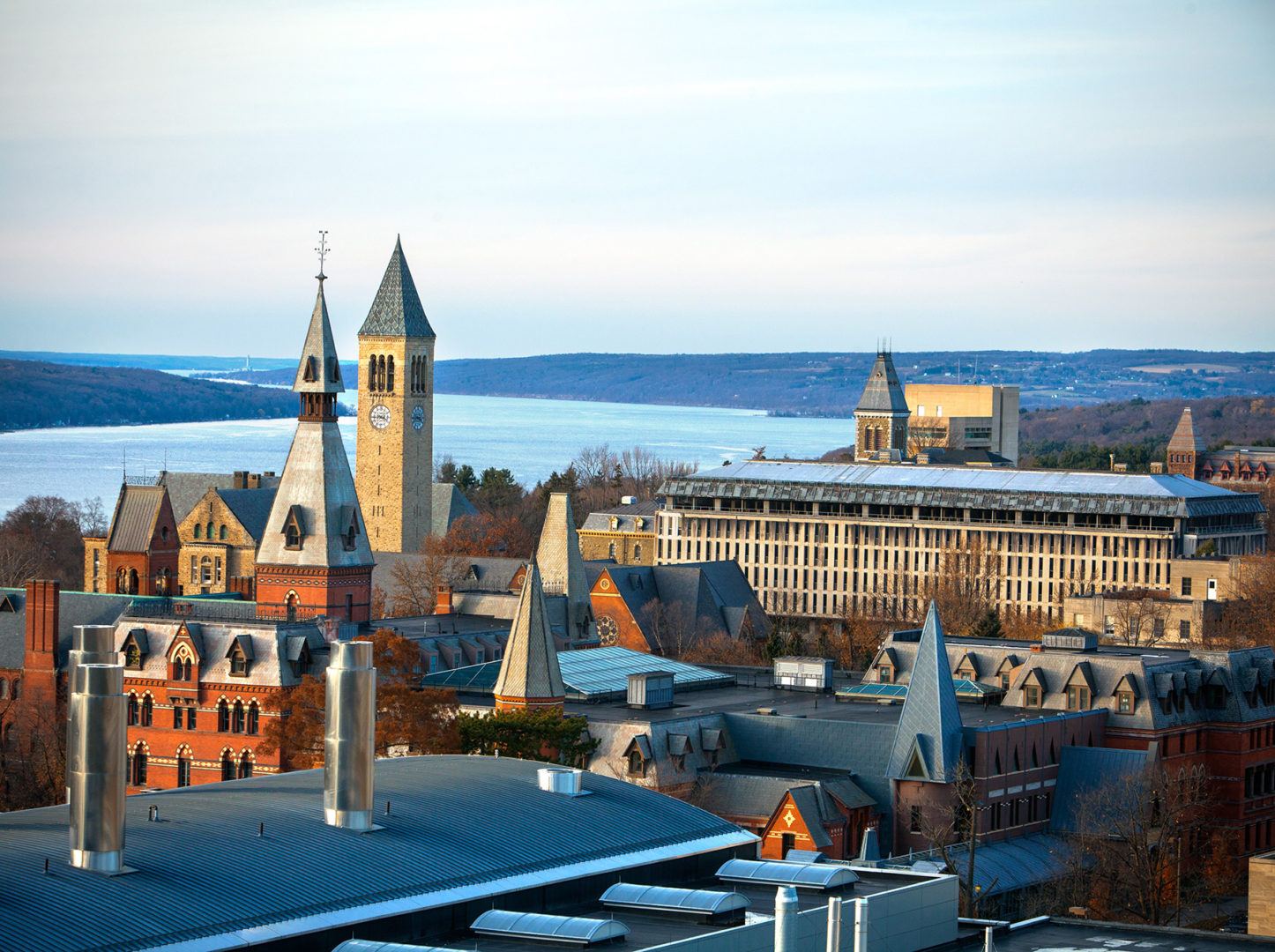Before the New York State Legislature would charter “the first American university” in 1865, Ezra Cornell had to defend his vision. His motives were under attack. Among his colleagues’ accusations was the charge that he was seeking to “erect a monument to himself.”
To refute these claims, Ezra prepared a statement. In it, he described his family’s history and his humble background as a farmer and mechanic, stating that he “thoroughly identified with the industrial, laboring, and productive classes.” He wrote clearly about his intentions, which he had reflected on for over a decade since amassing his great fortune in the telegraph industry. All of these intentions were distilled into one key phrase written by his own hand: to do the greatest good.
“My ruling desire is to dispose of so much of my property as is not required for the reasonable wants of my family, in a manner that shall do the greatest good to the greatest number of the industrial classes of my native state, and at the same time to do the greatest good to the state itself, by elevating the character and standard of knowledge.”
Good origins
Ezra’s desire to do the greatest possible good for humanity is seen in his writings as early as 1852. In a letter to Jeptha Homer Wade, one of the founding members of Western Union, he said:
“If I could have my choice, I should prefer that my name should be immortalized by its connection with some good deed, by alleviating the sufferings of humanity.”
This aspiration stayed with him. And much like his cyphering book, a journal that he hand-assembled and used to teach himself math and accounting throughout his childhood, the idea of doing the greatest good matured and took shape over time.
On July 20, 1864, another version of the phrase appears in an annotation within Ezra’s cyphering book:
“My greatest care now is how to spend this large income to do the most good to those who are properly dependent on me, to the poor, and to posterity.”
Good for any person
After the Cornell University charter was signed into law on April 27, 1865, the principle steering Ezra’s vision was able to take root and, eventually, branch into an entirely new expression.
On February 23, 1868, Ezra Cornell, in a letter to Andrew Dickson White, penned the first mention of what would become the university’s motto: “I would found an institution where any person can find instruction in any study.” He famously uttered those words again on October 6, 1868, immortalizing it as part of the university’s official dedication and the inauguration of Andrew Dickson White, Cornell University’s first president.
An enduring good
Even after his death in 1874, Ezra Cornell’s character and desire to do the greatest good lived on. During his Founder’s Day speech on January 11, 1890, Andrew Dickson White recalled Ezra’s legacy of good, stating:
“His religion seemed to take shape in a deeply reverent feeling toward his Creator, and in a constant desire to improve the condition of his fellow-creatures. He was never surprised or troubled by anything which any other human being believed or did not believe: of intolerance he was utterly incapable. He sought no reputation as a philanthropist, cared little for approval and nothing for applause; but I can say of him, without reserve, that, during all the years I knew him, ‘he went about doing good.’”
Despite decades of change since Ezra Cornell first put his initial thoughts to paper, his conviction and pursuit to do the greatest possible good for humanity have endured. More than 150 years later, his vision still touches the lives of Cornellians and communities all over the world.





